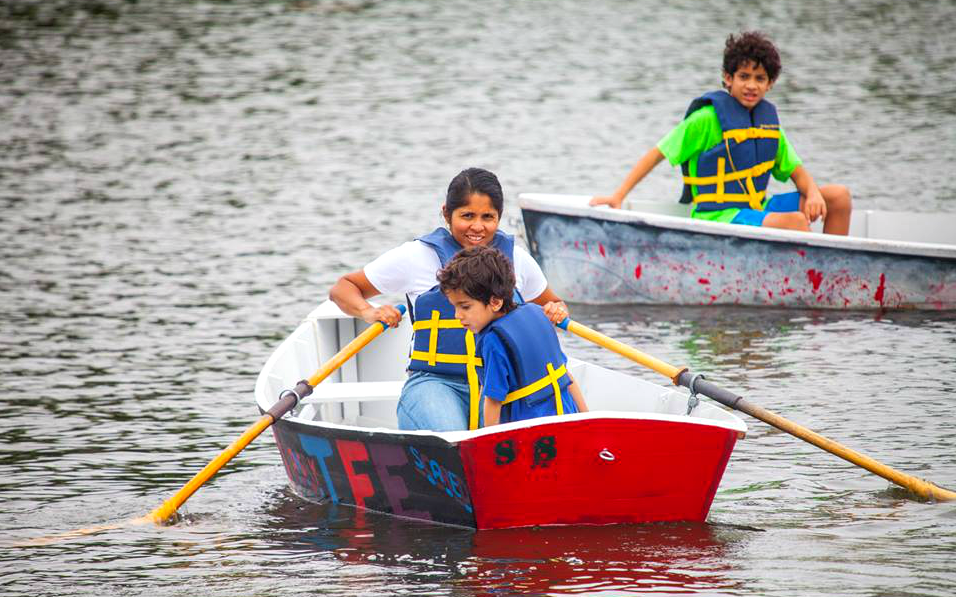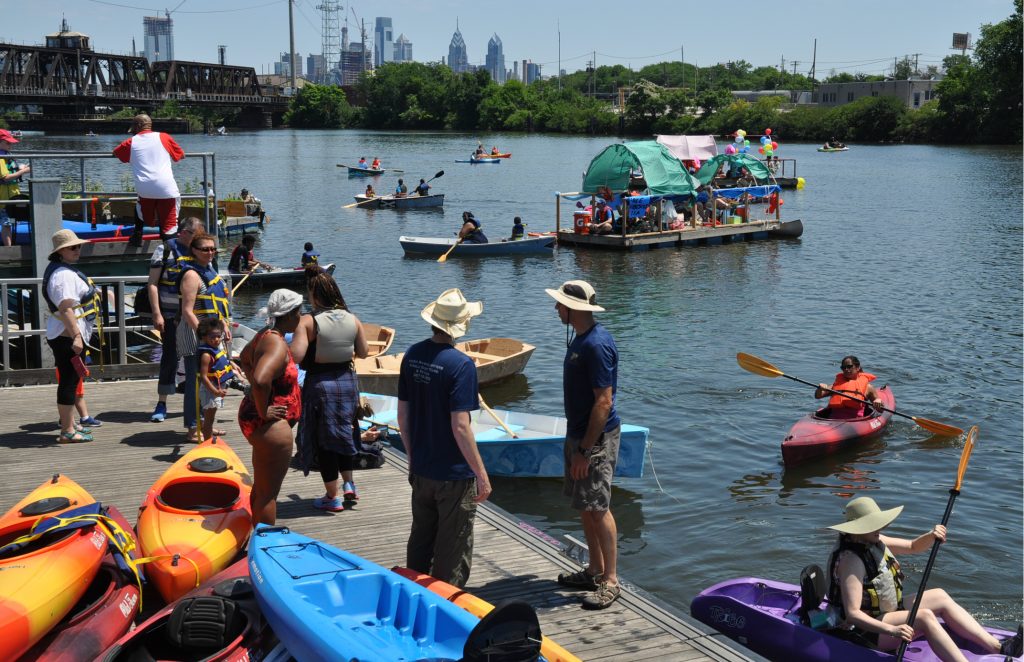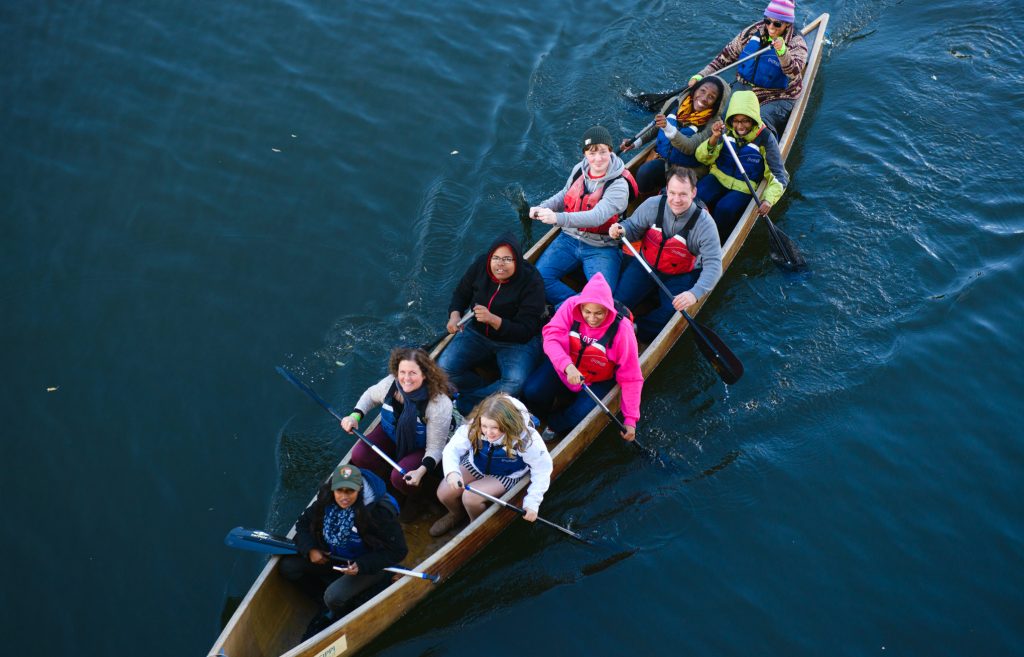Two local rivers have been polluted for decades, but they recently became clean enough for paddle sports recreation. Now, several community-centric nonprofit organizations want to start offering canoeing and kayaking activities to local residents and visitors. However, there’s a problem: Although they want to do it right, they have no experience in offering these activities.

If this situation sounds familiar, it’s because similar conditions are often found in developing countries, or underdeveloped regions of developed countries. It is in these geographical areas where the Adventure Travel Trade Association’s (ATTA) AdventureEDU trainings are held to provide expertise in properly developing the adventure travel sector.
In this case, however, the newfound opportunity I’m describing is not in a developing country at all. It is in greater Philadelphia, Pennsylvania, in the United States, on the Delaware and Schulykill Rivers.
For generations, these rivers have been — and still are, though now to a much lesser extent — subject to sewage discharges and industrial pollution. This is why paddle sports were not developed here previously; you wouldn’t want to be splashed in the face or go for a swim. This is changing, and today the water is just clean enough to get people out on it in small boats such as canoes and kayaks, which connect more intimately with the water than larger powerboats and sailboats. In recognition of World Water Day on 22 March, it is worth celebrating the improvements these waterways have seen and the many organizations and people who are working together so locals and tourists alike can enjoy and appreciate water recreation as a result.
These positive developments to the local rivers are thanks to the Clean Water Act and the efforts of many people and regional organizations such as the William Penn Foundation, which provides funding for watershed protection and supports programs making use of specific local trails and rivers, and the John Bartram Association, which has a facility on the Schuylkill River at Bartram’s Garden and provides on-water recreation opportunities and watershed education. In fact, several individual organizations have formed an alliance to coordinate their efforts to develop on-water programs and experiences, empower communities to protect these watersheds and rivers, and, therefore, magnify their results. This effort is just beginning and is certain to gain steam quickly.

“For 150 years this community has been given a polluted river. At one time this river unified this community — it was a center of human life and interaction and the center of the ecological world,” said Justin DiBerardinis, director of programs at Batram’s Garden. “We now are in a position to have it back. It’s not just about drinking water. It’s about a river city rediscovering itself.”
Referred by environmental leaders in the Chesapeake Bay area, the new water-based activity operators reached out to me for guidance on best practices for on-water operations, safety, and risk management. This project is challenging in that there is an absence of local experience or knowledge about outfitting industry best practices for operations, safety, and risk management. However, people are eager to learn and their vision for what they want to create is exciting: These organizations want to offer on-water activities not for monetary profit, but for a much higher purpose.
Their mission is to get their communities on the water to enjoy the physical, mental, and spiritual benefits these experiences can offer. Beyond facilitating fun paddling activities, they want to provide a strong educational component that is subtly folded into the experience — that interpretive piece giving participants an understanding of, and appreciation for, the resource and invites them to participate in its protection and stewardship.
“It is impossible to build the political will for conservation without use,” DiBerardinis said. “We need to approach our rivers with the same philosophy that we approached our national parks. We will save them through sharing them.”

Over the course of a paddling experience, staff and volunteers find opportunities — some planned and some impromptu — to talk about the history of the rivers, how they’ve been used to support industry and growing populations, and what past and current conditions have resulted in the degradation of the resource. Understanding cause and effect, and showing how changes in human behavior have helped to restore the rivers and their ecosystems, helps participants appreciate their role in conservation and stewardship long after their on-water excursions have ended.
This quiet approach to resource advocacy will help convert curious paddlers into caring voters, taxpayers, and citizens who value and care for their natural resources now and into the future. By cleaning up and protecting the rivers’ waters, the downstream communities, including the river and ocean fisheries we all depend upon, will also benefit.
The Philadelphia project parallels the ATTA’s AdventureEDU mission throughout the world, which enables adventure travel companies and outfitters to provide transformational experiences in a sustainable way, thereby creating energized stakeholders who care for the resources upon which the industry’s very existence relies.
Whether in Philadelphia or a spectacular backcountry destination in an undeveloped country, the mission is the same. This is worthy work.
